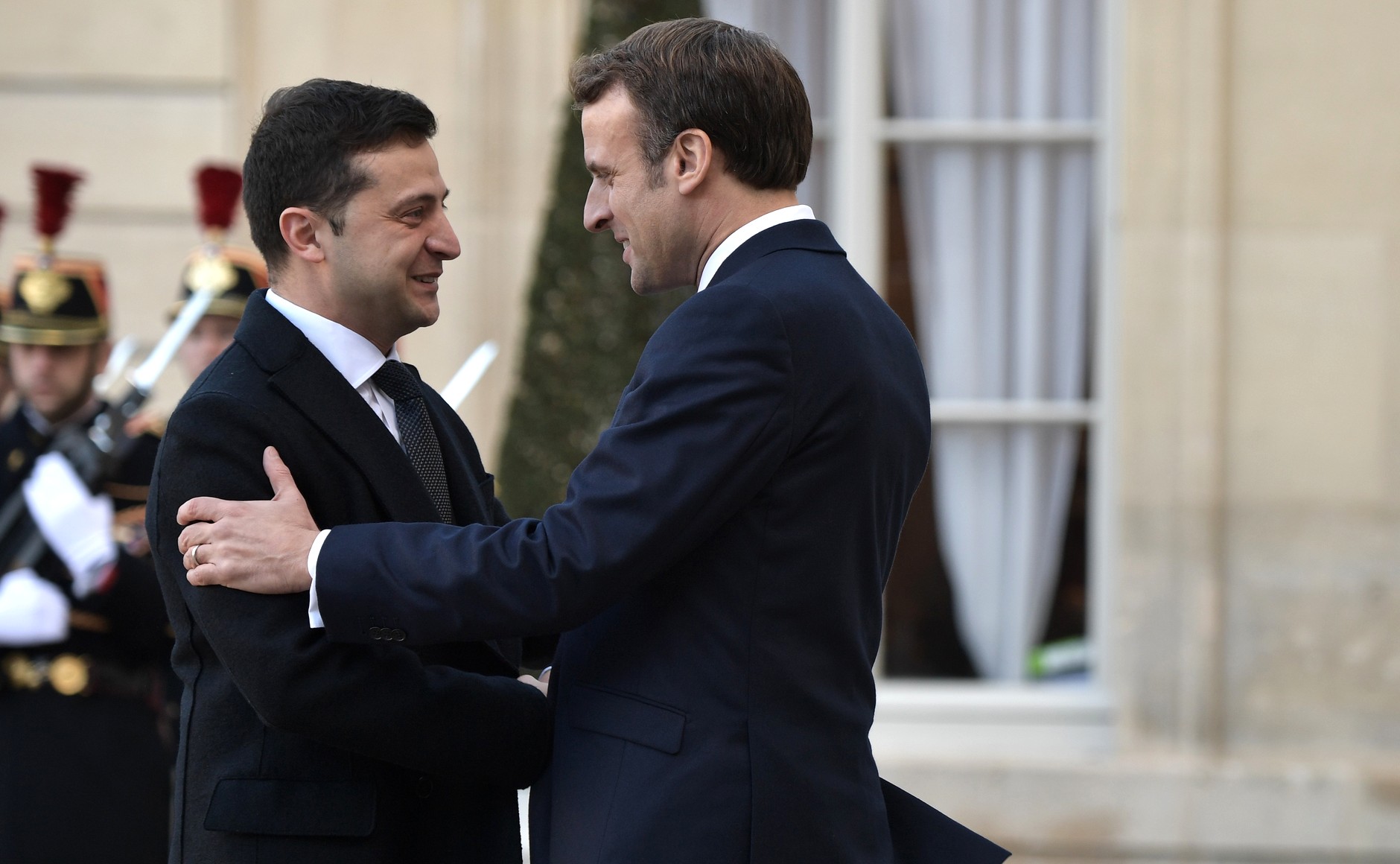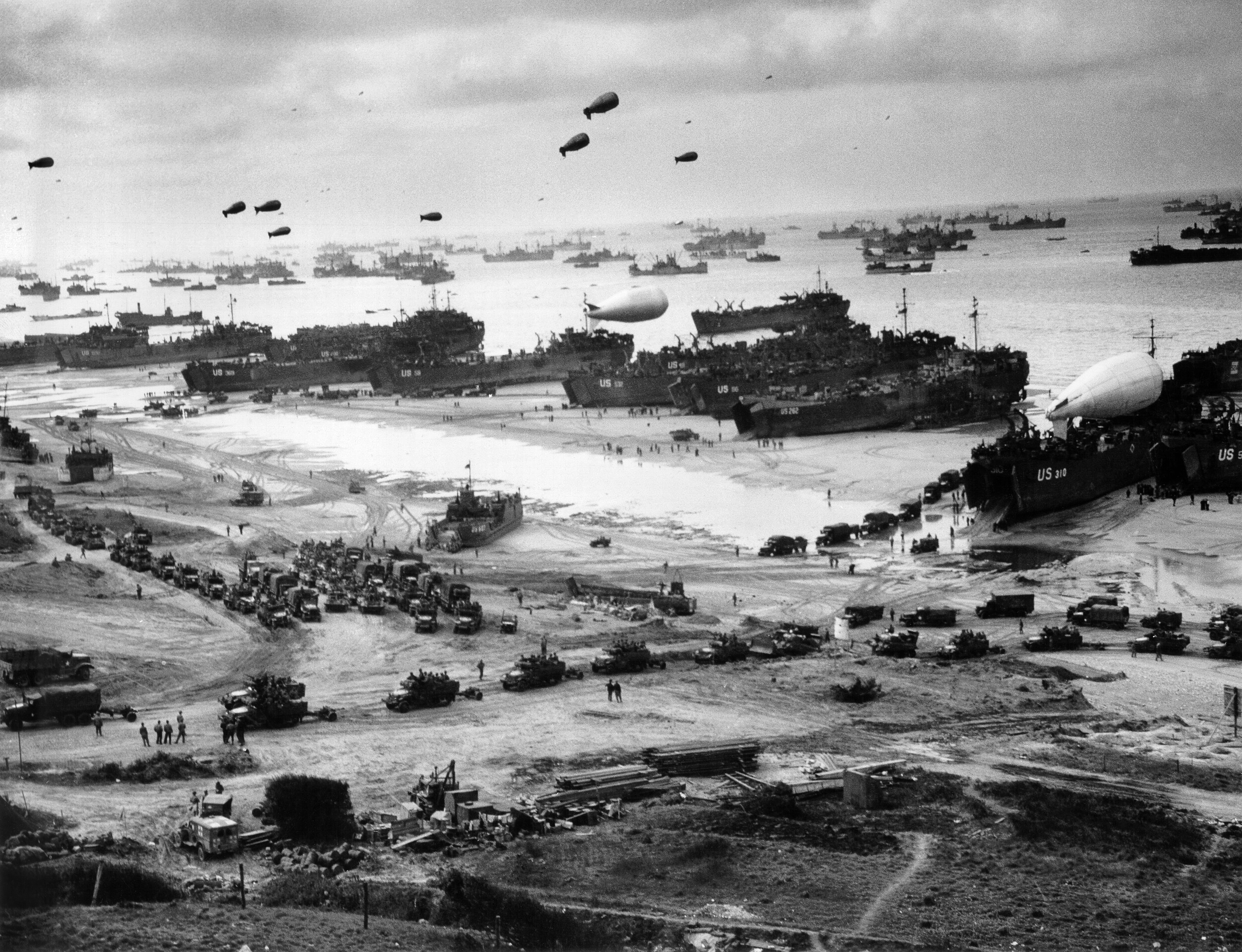France is considering extending an invitation to Russia to commemorate the 80th anniversary of the Normandy Invasion, which happened during World War 2, despite a surge in tensions and mistrust between the two countries.
The invitation for the ceremony, which will be held on June 6, will be sent through diplomatic channels. As the news of a possible invite broke out, the Kremlin Spokesman Dmitry Peskov clarified that Russian President Vladimir Putin had not yet received an official invitation, TASS reported.
When asked if the president had received an Invitation, the spokesperson said, “No, there have been no invitations yet.” Peskov, when questioned about the initial report, stated that he was unsure “what formed the basis of this report, whether it was official information or “bogus rumors.”
However, shortly after, another set of reports suggested that the invitation was meant for Russia but not the Russian President. The organizers of the June 80th commemoration of the D-Day landings during World War II have extended an invitation to Russia but Vladimir Putin will not be invited, France 24 reported on April 16.
Referring to Russia’s “war of aggression” in Ukraine, the organizing committee of the Liberation Mission—the specially created body organizing the 80th-anniversary commemorations—stated, “Given the circumstances, President Putin will not be invited to participate in the commemorations of the Normandy landings…Russia will, however, be invited… to honor the importance of the commitment and sacrifices of the Soviet peoples, as well as its contribution to the 1945 victory.”
The reports come against the backdrop of rising tensions between France and Russia, with French President Emanuel Macron taking the lead in arming Ukraine and starting a conversation with other NATO allies about sending troops from NATO to fight against Russia.
On its part, Russia asserted in January that it had murdered 60 French “mercenaries” in Kharkiv, while France condemned “a coordinated maneuver” of Moscow-produced misinformation.
There seemed to be a breakthrough in ties recently when the French authorities contacted Russia and declared that France was prepared to increase communication with Moscow to combat “terrorism.” This was in response to a recent attack in Moscow by the Islamic State group. However, that has since fallen through.
Implying that the Ukrainian and French governments have something to do with the terrorist attack, the Russian Defense Minister Sergei Shoigu told his French colleague that “we hope that the French special services weren’t involved in it” and that “the Kyiv regime does nothing without the approval of its Western handlers” about the Moscow attack, according to a statement from the Russian Defense Ministry.

This triggered an angry response from the French President, who said such comments “were indeed baroque and threatening, which is nothing new…In other words, it’s ridiculous,” Macron added.
“It makes no sense and doesn’t fit with reality” to say that France “could be behind it (the Moscow attack) and that the Ukrainians are behind it,” he said. “But it’s a manipulation of information, which is part of Russia’s arsenal of warfare today.” A thaw has not been achieved in stressed ties between the two countries that had united against the Nazis during WW2.
France has become openly belligerent against Russia since March, with analysts expressing surprise and confusion at a sudden transition from a dove to a hawk. The French President has been locking horns with Russia for over a month, in a stark departure from its previous position, where it only stuck with arming and assisting Ukraine.
However, the French invitation to Russia for the commemoration of the 80th anniversary of the Normandy Invasion is likely based on the significant role played by the former Soviet Union in defeating Nazi Germany. Russian President Putin had attended the 70th anniversary of the landings in June 2014, despite the annexation of Crimea just months ago.
Russia calls the Second World War, the Great Patriotic War, which it fought with military assistance from allies including the US, the UK, and France. The USSR’s Red Army fought valiantly against the Nazis. It suffered the most casualties during the war than any other force, as per Russia’s assertion.
What Was The Normandy Invasion?
The Normandy Invasion was the name given to the Allied invasion of Western Europe during World War II. It began on June 6, 1944, the most widely recognized D-Day of the conflict, when forces from the United States, Great Britain, and Canada simultaneously landed on five different beachheads in Normandy, France.
Planners selected the beaches in Normandy because they were less heavily fortified and within air cover, making them a more obvious target than the Pas de Calais, which was the shortest route between the United Kingdom and the continent.
As per the plan, roadways to the interior were to be opened, and the flanks were to be protected by airborne drops at both ends of the beachheads. On the first day, six divisions — three American, two British, and one Canadian — were scheduled to arrive. After the assault division broke past the beach fortifications, two more British and one American division were to follow.
Nearly 160,000 Allied troops landed in Normandy on June 6, 1944. They faced around 50,000 German forces. Codenamed Operation Overlord, the campaign to free western France from Nazi rule involved over two million Allied soldiers, sailors, pilots, medics, and other personnel from 12 other countries. The invasion featured thousands of vehicles, 7,000 ships and boats, and around 11,000 Allied aircraft.
In addition to upsetting German anti-invasion preparations, the air campaign was intended to act as a decoy. To convince the enemy that the landings would take place northeast of the Seine, specifically in the Pas-de-Calais area directly opposite Dover, England, and not in Normandy, two-thirds of the bombs were dropped outside the invasion area.

Targeting five code-named beaches in succession—Omaha, Utah, Gold, Sword, and Juno—the sea landings began at 6:30 a.m. local time, shortly after sunrise. Along with these inland actions, the mission also featured U.S. Army Rangers scaling cliffs to destroy German gun positions and night-time parachute drops on key German installations.
Targeting five code-named beaches in succession — Omaha, Utah, Gold, Sword, and Juno — the sea landings began at 6:30 a.m. local time, shortly after sunrise. Along with these inland actions, the mission also featured US Army Rangers scaling cliffs to destroy German gun positions and night-time parachute drops on key German installations.
However, the landings were replete with unforeseen dangers. Particularly in Utah and Omaha, strong winds drove the landing craft east of their intended sites. The beach was mined and littered with impediments, including barbed wire, metal tripods, and wooden stakes, making the task of the beach-clearing teams hazardous and challenging. The men landed under intense fire from gun emplacements overlooking the beaches.
Omaha’s cliffs caused the most casualties. Several defended villages at Gold, Juno, and Sword were cleared in house-to-house action, and two significant gun emplacements at Gold were neutralized by specialized tanks.

On the first day, none of the objectives set forth by the Allies were met. The Germans managed to hold onto Carentan, Saint-Lô, and Bayeux, while Caen, a crucial target, was only taken on July 21. On June 12th, all five beachheads were joined, except Juno and Gold, which were the only two beaches linked on the first day.
In the ensuing months, the Allies did, however, steadily increase the operation’s base of operations. An estimated 4,000 to 9,000 men were lost to Germany on D-Day.
In contrast, at least 10,000 Allied casualties were recorded, of which 4,414 were verified to be dead. The operation was considered largely successful as it laid the foundation for a more coordinated war effort against the Germans, who were taken aback by the landings.
This is why the Normandy landing is considered to be the most significant operation against Hitler’s forces despite huge casualties.
- Contact the author at sakshi.tiwari9555(at)gmail.com
- Follow EurAsian Times on Google News




